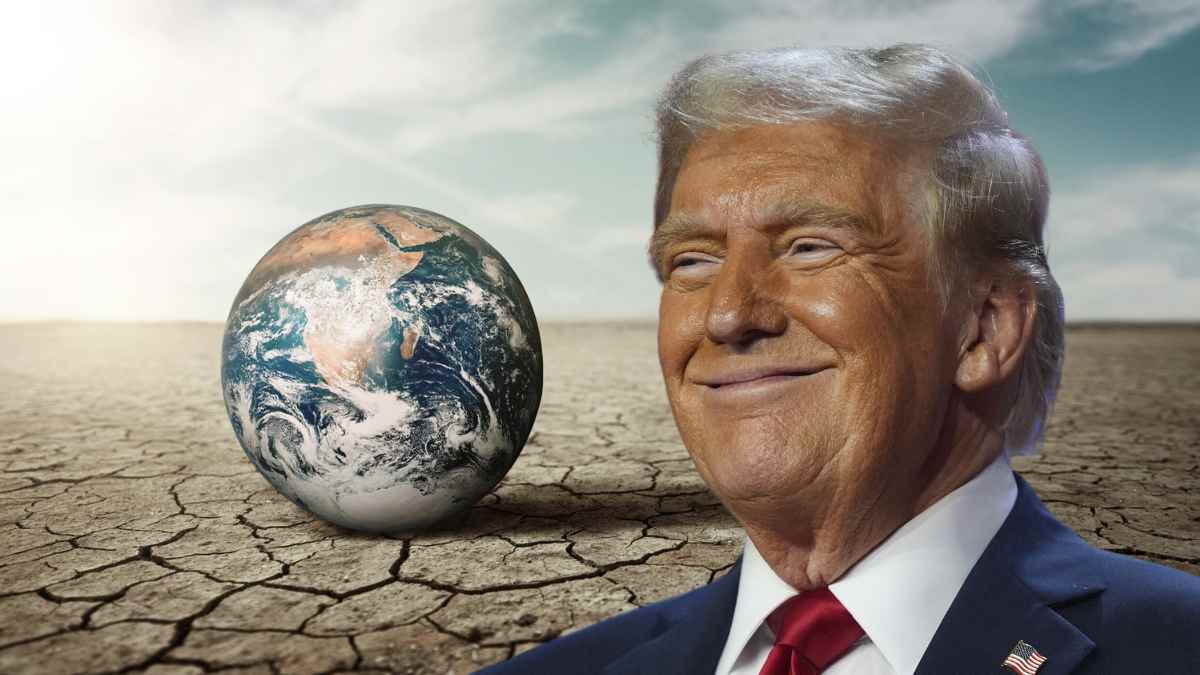The last US presidential election took place in November 2024, and the results are still being confirmed. For the moment, however, Donald Trump appears to be rebounding. His return to the White House will have a hugely negative effect on climate change action in the short term, experts say. With world leaders meeting next week at COP29, the final UN climate talks, Trump’s victory is seen as a huge obstacle to progress on both cutting emissions and raising funds for developing countries.
The U.S. president-elect is a well-known climate skeptic who has called efforts to boost green energy a “scam.” But with renewables gaining ground in the US and popular support for wind and solar, Trump’s efforts to promote oil and gas could in turn be less effective. At the time, he announced that the US would withdraw from the Paris Climate Agreement, the UN’s most important process for addressing climate change. Under the agreement, nearly every nation in the world pledged for the first time to reduce emissions of greenhouse gases that cause global warming.
But the impact of Trump’s decision was limited. Under the treaty’s rules, the United States could not withdraw until November 2020, a few months before he leaves office. If Trump withdraws again, he would only have to wait a year before the United States would be completely out. This means he would have three years to chart his own course without being accountable to the UN or subject to its rules. Although Joe Biden’s current negotiators will be at the COP talks next week in Azerbaijan, nothing they agree to will be binding on the Trump administration.
The United States and the Trump presidency: A powerless participant in the global fight against climate change
“At this COP, the United States is not just a lame duck, it’s a dead duck,” said Professor Richard Klein, an expert on climate change policy at the Stockholm Environment Institute, in an interview with the BBC. “They can’t commit to anything, and that means countries like China won’t want to commit to anything at all.” In recent years, richer countries, such as the United States, the United Kingdom and the EU, have sought to increase the funds available to help developing countries cope with climate change. But they also insist that large developing economies must contribute.
“Basically, the U.S. wanted China to contribute money to that fund as well. Now they won’t be able to. This puts China out of the picture,” said Professor Klein. Climate scientists say developing countries need billions of dollars in additional investment to become net-zero emission countries, meaning they do not contribute to climate change and avoid the effects of rising temperatures. President Trump is likely to expand oil and gas drilling in Alaska. While the U.S. could withdraw from the Paris Agreement fairly quickly, Trump would still be bound by other global efforts to fight climate change.
Apparently, some of his supporters also want to turn their backs on these efforts. Some have advocated a complete break with the UN’s climate change efforts, the treaty that underpins global collective action to address climate change. The U.S. Senate ratified it almost unanimously in 1992. Legal experts are unclear about the process for leaving the treaty, but any U.S. attempt to withdraw would be seen as a blow to the very foundations of multilateral action to address the world’s greatest threat.
Trump’s backtracking is unlikely to halt progress
In addition to these headline-grabbing international measures, the new Trump administration is unlikely to push for a significant increase in U.S. oil and gas drilling. It is also unlikely to roll back environmental protections, and impose steep tariffs on electric vehicles and solar panels from China. Dan Eberhart, chief executive officer of oilfield services company Canary LLC, told Bloomberg News: “Overall, we’re facing a drill, drill, drill philosophy. You’ll see offshore lease sales, you’ll see pipelines moving much faster, you’ll see fracking on federal lands and a mentality focused on reducing energy costs for consumers.”
Wednesday saw a significant drop in the stock prices of turbine manufacturers as fears grew that U.S. offshore wind farms could be canceled under a Trump presidency. But in the long term, it is unclear whether the new president will turn back the clock on coal, oil and gas, or slow the growth of sustainable energy sources. For starters, he faces opposition, especially within his own party. ”The outcome of this election will be seen as a major blow to global climate action,” Christina Figures, former head of the UN Climate Change Office, told the BBC. “But it cannot and will not stop the changes underway to decarbonize the economy and to meet the goals of the Paris Agreement.”






